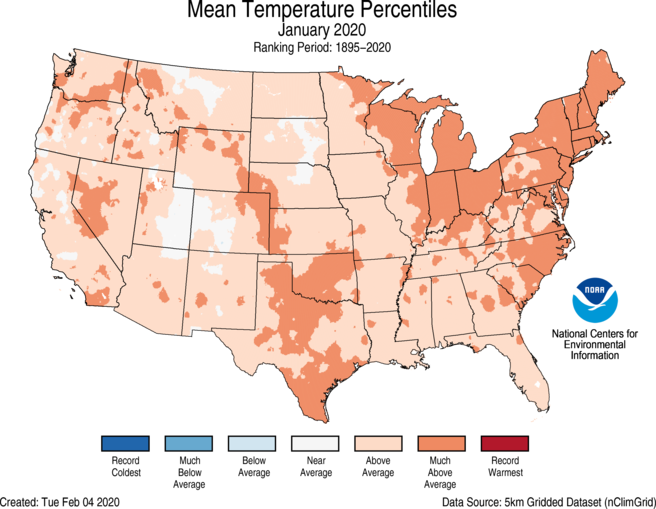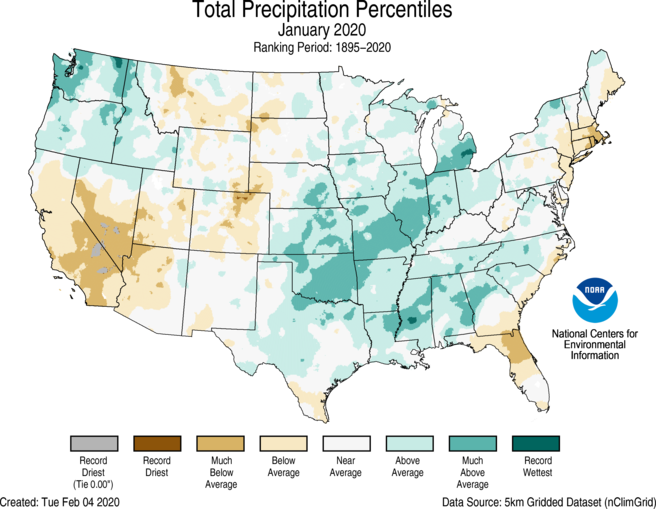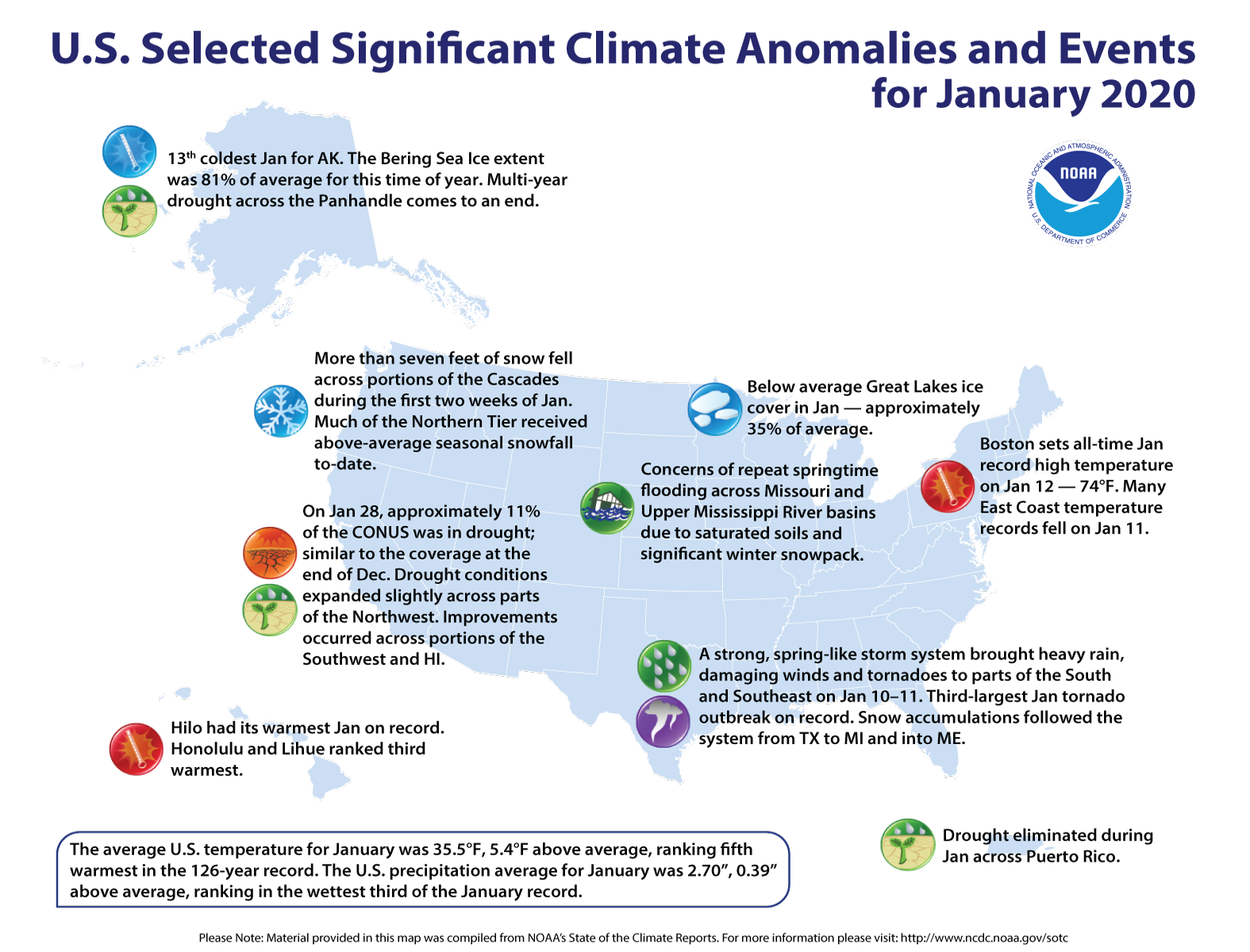January Weather Stats: Fifth Warmest, Third Wettest on Record
Here are more U.S. highlights for the month from NOAA’s National Centers for Environmental Information:
January Climate by the numbers

The average January temperature across the contiguous U.S. was 35.5 degrees F (5.4 degrees above the 20th-century average) and ranked fifth warmest in the 126-year record. Much-above-average temperatures were observed across much of the Great Lakes and Northeast as well as parts of the Mid-Atlantic, Southeast, West and southern Plains.
January’s precipitation for the contiguous U.S. was 2.70 inches (0.39 of an inch above average), which ranked it in the wettest third of all the Januarys on record. January precipitation extended a rather wet 12-month stretch: February 2019 through January 2020 was the third-wettest such period ever recorded, 4.99 inches above average.
Last month, much-above-average wetness was observed across the Pacific Northwest as well as portions of the central and southern U.S. Washington state experienced its fourth-wettest January, while Oklahoma saw its sixth wettest on record.

More notable climate events for the month:

-
A January that forgot it was winter: No state in the Lower 48 ranked average or below average temperature-wise for January 2020. The month ranked as the fifth warmest January on record for Michigan, and the sixth warmest for Wisconsin and Rhode Island.
-
Great Lakes saw relatively low ice coverage: Ice coverage was approximately 35 percent of average for January. Lake Erie, normally about 50 percent ice-covered by January 31, was only 0.4% frozen this year.
-
Alaska chilled out (brrrrr!): In stark contrast to the record warmth experienced during 2019, Alaska’s average January temperature was a very frigid -6.2 degrees F -- 8.4 degrees colder than the long-term mean. It was Alaska’s coldest January since 2012.
-
Drought remained stable: According to NOAA’s U.S. Drought Monitor, approximately 11 percent of the contiguous U.S. was in drought by the end of January, similar to the extent observed at the end of December 2019.